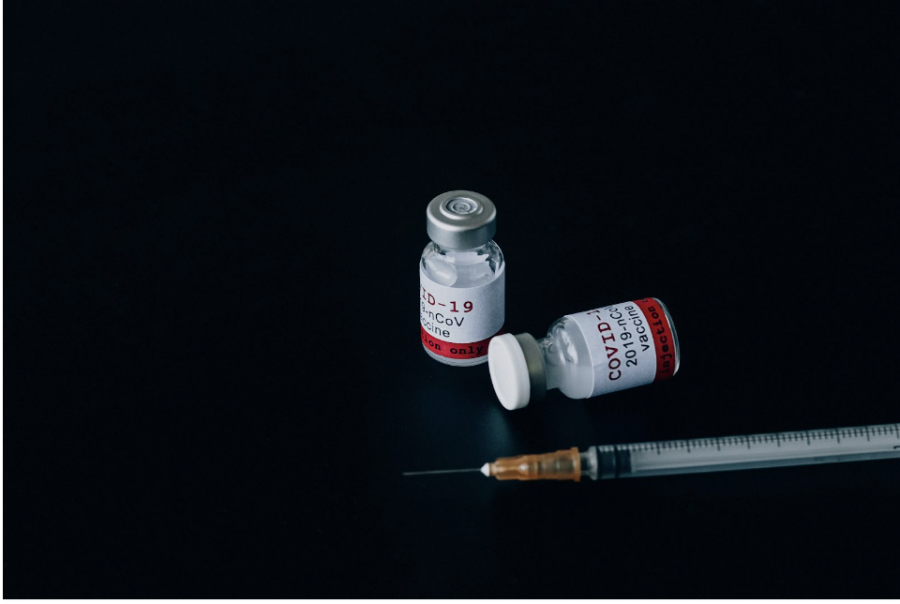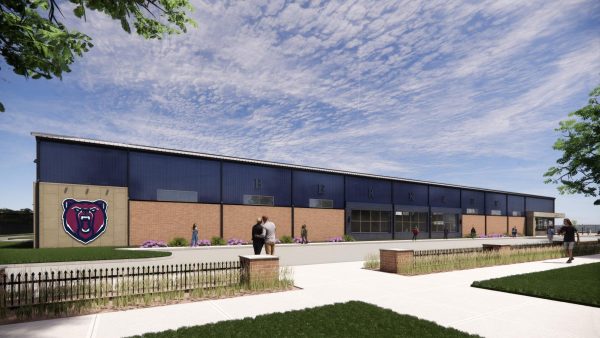Multiple Covid-19 Vaccines Approved by FDA
Photo by Nataliya Vaitkevich from Pexels
Two vials of Covid-19 vaccination Serum
Exactly one week apart, two Covid-19 vaccines, which are claimed to be effective, were announced to the public. Monday, Nov. 9, Pfizer, an American biopharmaceutical company, and BioNTech, a German biotechnology company, announced the new Covid-19 vaccine candidate they developed (BNT162b2). Results of this testing showed the vaccine is approximately 95 percent effective. According to Pfizer, data shows out of 44,000 tested volunteers, 94 got Covid-19. In a report by Pfizer, adverse events of their vaccine may have included fatigue, headache, chills, muscle and joint pain, and redness and swelling at the injection site. These were all classified as mild side effects.
Subsequently, on Monday, Nov. 16, Moderna, an American biotechnology company, announced their new vaccine candidate (mRNA-1273). This vaccine is claimed to be 94.5 percent effective. Out of 30,000 volunteers participating in the phase III study, half of them were given a placebo (vaccine), and half received the mRNA-1273. From these tests, 95 cases of Covid-19 surfaced, 90 arising from the placebo injection and only five from the mRNA-1273. Moderna states in a press release, “The majority of adverse events were mild or moderate in severity… These solicited adverse events were generally short-lived.” Noted side effects of the Moderna vaccine include fatigue, chills, headaches, joint and muscle pain, and redness or pain at the injection site.
For distribution of these Covid-19 vaccines to dosing locations, vaccines must be kept in controlled thermal shippers. Pfizer-BioNTech’s BNT162b2 will have to be kept at -94ºF (-70ºC) or lower in the shippers. After this, it can be transferred to and kept in vials of 35.6- 46.4ºF (2-8ºC) for an extra 5 days, but after this, the vaccine cannot be re-frozen. Moderna’s mRNA-1273 needs to be kept at only -4ºF (-20ºC) in the shippers. Afterward, this vaccine can be kept at 35.6- 46.4ºF (2-8ºC) for thirty days. mRNA-1273 is a more convenient vaccine to be distributed, with lower temperatures needed and longer last time. This puts mRNA-1273 in higher consideration to be used as the vaccine in the U.S.
Both of these are mRNA vaccines. mRNA (messenger ribonucleic acid) is a molecule in cells that transports codes from DNA to produce proteins. An mRNA vaccine codes the protein of the (Covid-19) virus and inserts this into a cell, in order to stimulate an immune response to create antibodies to the virus. An mRNA vaccine has never been approved before. These vaccination trials are tested on volunteers with diverse backgrounds, who show no signs of prior SARS-CoV-2 infection. Regardless of which vaccine, volunteers will undergo a series of two injections spaced out three to four weeks.
Despite some misgivings in the general public, these vaccines have been through rigorous testing to ensure their safety. This testing and development, however, has been sped up from normal vaccine development. Usually, it takes around 10 years from the start of research on a vaccine to the release of the vaccine. One program that makes this possible is Operation Warp Speed. Vaccine development will be sped up, while still meeting safety and efficiency regulations. The goal is to develop and provide millions of doses of Covid-19 vaccines to the public, with initial doses already being given during December.
Joe Hansen on It’s Okay To Be Smart explains that to speed up this development process, the companies producing vaccines must still complete every step of the safety guidelines, they just need to do some at the same time. This differs from the previous way of developing vaccines in which each step was done individually. One way to understand this difference is if we were to compare it to a high schooler working their way through a typical school year. Operation Warp Speed would be like the student working on all of the assignments of only one class simultaneously, instead of working on six different classes and doing all of the work sequentially. Prior to any other steps though, in-depth research has to be done about what in the vaccine will fight the virus. The steps for vaccine development are; research, pre-clinical, phase 1, phase 2, phase 3, building factories, manufacturing, approval, and finally distribution.
The chief medical correspondent for CNN Sanjay Gupta answered certain questions about concerns regarding the Covid-19 vaccine on CNN. When asked the question, “Did they make [the vaccine] too fast?” Gupta answered, “What typically takes years for vaccine development only took months this time around, but it still went through the checks and balances, it went through clinical trials, it is now being reviewed by FDA scientists. When we get that data back we’ll have a really good idea, is this effective.” Gupta took to answering more questions on his Twitter account, saying overall that time will give us most of the answers we are looking for, like long term side effects, but as of now they are deemed safe and met the two-month safety threshold they needed in order to apply for Emergency Use Authorization (EUA).
USA Today reports that Dr. Fauci states, “When [the Covid-19 vaccine] gets approved by the FDA, given the time of my turn when it comes, I would take the vaccine and I would recommend that my family take the vaccine.” Dr. Fauci also states, “ We know we have an efficacious vaccine, we’ve proven it … It would not be effective if people don’t take it.” Dr. Fauci, director of the National Institute of Allergy and Infectious Diseases, believes that since we have an effective vaccine that may improve the rough times our country is going through, everyone should be getting it.
Both of these vaccines have to be confirmed by The U.S. Food and Drugs Administration (FDA) before becoming widely available. The FDA wanted the vaccine to be at least 50% effective, so these vaccines have a high probability of being approved for the public because of their high effective rates. The FDA will get advice from The Vaccines and Related Biological Products Advisory Committee (VRBPAC) on whether they should approve the vaccine for immediate (emergency) use. There are still matters to uncover about these vaccines, like long-term adverse events, which may be revealed as more testing is done. So far, no major side effects have been identified. Although information about these new vaccines is relatively scarce and a bit controversial at this point, most of America is beyond relieved to hear any sort of good news they can get in these hard times.
For the Covid-19 vaccines there are benefits, yet unknowns. Time will give us more information on these vaccines. Based on data from the companies, Pfizer & BioNTech’s Covid-19 vaccine (BNT162b2) and Moderna’s Covid-19 vaccine (mRNA-1273) are all promising at this point. They may get FDA approval for Emergency Use Authorization and soon be distributed to the public.
“As a healthcare worker, yes I would get the [Covid-19] vaccine,” pediatrician Jenny Bloom stated. “The vaccine would protect me and it would also protect me from spreading Covid, not only to family and friends but patients as well. If I am protected it allows me to treat other people who are sick.”
Bloom, like many others in the United States, wants this vaccine not only to ensure their own safety but also for the safety of everyone in our country.
“In a situation where hundreds of thousands of lives have been lost, and we have a disease that is running rampant with no end in sight, the vaccine offers the most hope, although it’s potentially not perfect. It offers the ability to regain a semblance of normalcy, economic stability, and stability in our healthcare system.”
When covering some of her uncertainties, Bloom acknowledges, “Yes, [the speed of development] makes me pause for a minute. But, I believe we have measures in place at a time of real national emergency to use resources in a different way than we might in a non-emergent situation. I think that there are questions that still linger, but I still believe the benefit outweighs the risk… especially for people who are high risk. I am relatively trustworthy of the scientific process when it comes to vaccines in general, and I trust that the vaccine is safe.”
Bloom’s thoughts towards the vaccine seemingly mirror those of many Americans. They are willing to get a Covid-19 vaccine, despite the unknowns, to attempt to save tremendous amounts of lives and restore our country.
On the other hand, some Americans do not feel that the benefit of a Covid-19 vaccine does outweigh the risks. The dangers some see this vaccine as is possibly just as stressful as Covid-19 itself.
Lauren Katkowsky, a resident of Huntington Woods and mother of students in the Berkley School District, sees why this vaccine might help our country, but she is not ready to overlook the uncertainties about this vaccine.
“I think I would not get the Covid-19 vaccine,” Katkowsky states. “It is a new vaccine with very little data and research to back it so I would be skeptical. I think it takes much longer to develop a safe vaccine than this timeframe, but I understand the need for the fast development because the virus is so widespread and a lot of people are dying from this virus.”
Katkowsky states the negative aspects of this vaccine are, “The potential for negative long-term impacts that are unknown because this vaccine is brand new, the possibility of injury, and the possibility of it not being effective over time.”
In regards to this, Katkowsky explained, “I would like to trust that [the regulations] are being met because I would like to believe that the system is looking out for the best interest of the population, but it is hard for me to completely have faith in that.” Katkowsky ended by saying “ I think if it works for people it could change the course of this virus and help us all get back to normal life again, so I do see the positive and I see the benefit of vaccines in general, but with this vaccine, I am not sure.”

Hi! I am Aria Dwoskin, and this year I am the Editor-in-Chief of the Berkley Spectator! I am a senior, and this is my fourth year on The Spectator. I...







